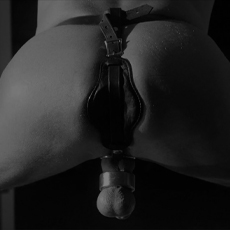
What does the average penis size really mean, and does it even matter? For many, these questions linger like an unspoken curiosity—an itch that needs scratching but rarely gets discussed openly. From locker room banter to private bedroom concerns, the topic of penis size can stir up a whirlwind of emotions, ranging from pride to anxiety. But is it all just hype? Are we placing too much emphasis on a number?
Imagine a world where size didn’t dominate the conversation—where the focus was instead on confidence, connection, and the experience itself. As we dive into the details, you'll discover that there's much more to this topic than mere inches. Whether it's breaking down the science, exploring what people truly value, or understanding when size could actually matter, we're here to separate fact from fiction and offer a fresh perspective on one of the most talked-about aspects of male anatomy. Ready to find out what really counts? Let’s get started.
How Long Is the Average Penis?
The average length of a penis is a topic that often sparks curiosity, and numerous studies have provided insights into what can be considered "average." According to a comprehensive review published in the British Journal of Urology International (BJUI), the average length of an erect penis is approximately 13.12 cm (5.16 inches). For a flaccid penis, the average length is around 9.16 cm (3.61 inches). These findings are based on the measurements of over 15,000 men from around the world, providing a broad and inclusive dataset for analysis.
It is important to understand that there is a wide range of what is considered normal. The same BJUI study found that the average girth of an erect penis is about 11.66 cm (4.59 inches), while the flaccid girth is roughly 9.31 cm (3.66 inches). Such variations are natural and should be regarded as part of the human body's diverse characteristics.
Men often compare themselves to these averages, but it's crucial to recognize that factors such as body type, genetics, and even measurement methods can affect these numbers. Additionally, the perceived size can be influenced by other factors, including weight and overall health.
Does Penis Size Matter?

The age-old question of whether penis size truly matters has been the subject of countless debates, studies, and discussions. While many people may have strong opinions on the matter, the answer is more nuanced than a simple "yes" or "no." Several factors come into play, including cultural norms, personal preferences, and psychological aspects.
The Role of Personal Preference
When it comes to sexual satisfaction, personal preference plays a significant role. Some people may find a larger penis more appealing, while others may prioritize factors like technique, emotional connection, or intimacy. "What truly matters is how a partner uses what they have and the emotional connection they build with their partner," says Dr. Emily Morse, a sexologist and relationship expert. Morse emphasizes that many people overlook the importance of communication and comfort in sexual relationships, which often outweighs size.
The Psychological Perspective
Psychologically, perceptions of penis size can affect self-esteem and confidence, especially in a culture that often links masculinity to size. A study published in the Journal of Sexual Medicine found that while some women may prefer a slightly larger size for short-term relationships, they prioritize different factors, such as trust and reliability, in long-term partners. This demonstrates that size may play a role in attraction, but it is far from being the sole determinant of relationship satisfaction.
What Do Experts Say
Experts suggest that the emphasis on penis size is often exaggerated by societal pressures and unrealistic portrayals in media. "Focusing too much on size can lead to anxiety and negatively impact sexual performance," notes Dr. Justin Lehmiller, a social psychologist and research fellow at The Kinsey Institute. He encourages focusing on aspects like mutual pleasure, foreplay, and sexual skills, which contribute more significantly to a fulfilling sexual experience.
When Do You Need to Worry?
While concerns about penis size are common, most worries are often based on misconceptions or societal pressures rather than medical facts. Generally, there's no need to worry about your penis size unless it significantly affects your physical health, sexual function, or self-esteem to the point of impacting daily life. Below are some instances where it might be worth considering a conversation with a healthcare professional:
Erectile Dysfunction (ED) or Physical Discomfort: If you're experiencing issues like erectile dysfunction, pain during erections, or discomfort while engaging in sexual activity, these could be signs of an underlying health condition that requires attention.
Peyronie's Disease: A noticeable bend or curve in the penis that causes pain or affects sexual performance could indicate Peyronie's disease, a condition caused by fibrous scar tissue developing inside the penis. This condition may require medical treatment to prevent complications.
Emotional and Psychological Impact: If concerns about penis size are severely affecting your mental well-being, leading to anxiety, depression, or even relationship difficulties, it may be beneficial to seek advice from a mental health professional or a counselor. They can help address the underlying issues and guide you through steps to boost your confidence.
Can You Increase the Size of Your Penis?

The idea of increasing penis size is a common concern for many men, driven by societal pressures and personal desires for enhanced self-confidence. The good news is that there are several methods available, ranging from natural exercises to medical interventions. However, it’s important to understand the effectiveness and risks of each approach. Let’s explore the most popular methods and what science says about them:
Natural Methods: Exercises and Stretching
For those seeking to enhance their size naturally, exercises such as "jelqing" and manual stretching are popular choices. These techniques involve specific hand movements aimed at increasing blood flow and gradually stretching the penile tissues over time. Advocates of these methods claim slight gains in length or girth with consistent practice. However, it's crucial to understand that these exercises come with risks. Improper techniques or overexertion can lead to bruising, scarring, or even nerve damage. Therefore, if you decide to try these methods, proceed with caution, follow reliable guidelines, and listen to your body's limits to avoid injury.
Devices: Pumps and Extenders
Penis pumps and extenders are non-surgical devices designed to temporarily increase size by drawing blood into the penis or stretching it over time. Pumps can provide short-term enhancement, useful for erectile dysfunction, while extenders might offer modest gains if used regularly. Nonetheless, they should be used according to instructions to avoid damage.
Medical Procedures: Injections and Surgery
For those seeking more permanent solutions, surgical options such as penile implants or fat transfer can increase both length and girth. Additionally, cosmetic fillers may offer a less invasive alternative. However, these procedures are costly and carry risks, including infection and dissatisfaction with results. It's crucial to consult a qualified urologist to understand the potential outcomes and complications.
Ways to Build Confidence
When it comes to feeling secure about penis size, confidence isn't just about what’s between your legs—it's about how you perceive yourself and project that self-assurance to the world. Here are some effective ways to build confidence:
Focus on Overall Health and Fitness: A healthy body often leads to a healthy mind. Regular exercise, proper diet, and staying active can improve your physical appearance and boost your mood, making you feel more confident in your skin. Feeling good about your body as a whole, rather than focusing on one aspect, can help shift your mindset.
Enhance Sexual Skills and Knowledge: Confidence in the bedroom often comes from understanding that sexual satisfaction involves more than just size. Learning about different techniques, communication, and ways to please a partner can significantly boost your self-esteem. Knowledge and experience can make you feel more equipped and confident during intimate moments.
Cultivate a Positive Self-Image: Confidence comes from within. Working on self-love and acceptance can be transformative. Practice self-affirmation, surround yourself with supportive people, and focus on what makes you uniquely attractive and capable. The way you feel about yourself impacts how others perceive you, so radiate positivity and confidence.











 luvsenz
luvsenz  ssxdesire
ssxdesire  eesensual
eesensual  ssdelight
ssdelight  intilust
intilust  eeromance
eeromance  sintimatee
sintimatee  spassionn
spassionn  lustssx
lustssx  ssecstasy
ssecstasy  lesaria
lesaria  femles
femles  vibher
vibher  pleasurax
pleasurax  ecstasyedge
ecstasyedge  eroswave
eroswave  desiredock
desiredock  intimatenest
intimatenest  eroblend
eroblend  erofusion
erofusion  intrnest
intrnest  desirejunction
desirejunction  seductionnook
seductionnook  heroxt
heroxt  egoxt
egoxt  tactxl
tactxl  exxlust
exxlust  lustrefuge
lustrefuge  spleasurey
spleasurey  ettempt
ettempt 
 sensujoy
sensujoy  femmeflir
femmeflir  evetoux
evetoux 
 vavaxl
vavaxl  alluset
alluset  luvtempt
luvtempt  eroglee
eroglee 

 thrilltop
thrilltop  luvmale
luvmale  gayvib
gayvib 
 domcockring
domcockring 
 blissbondage
blissbondage  tribetether
tribetether  pridepunish
pridepunish  rainbowrough
rainbowrough  spectrumslave
spectrumslave 
 furyplug
furyplug 
 edgegaze
edgegaze 

 gayvibsextoy
gayvibsextoy